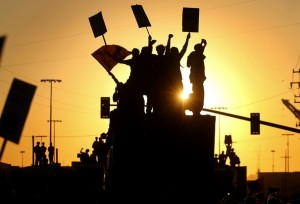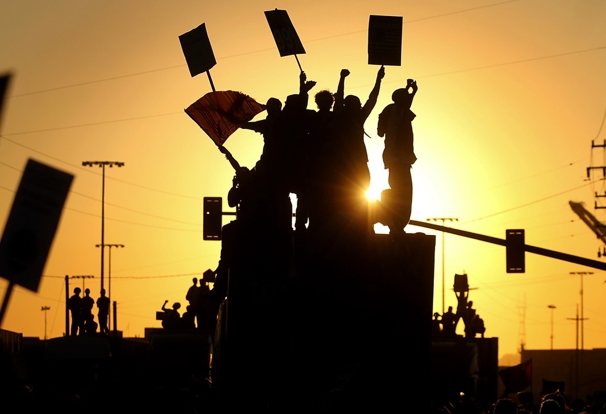 The Occupy Wall Street movement is one year old. And what can we say it accomplished?
The Occupy Wall Street movement is one year old. And what can we say it accomplished?
Nothing, really.
This post will make a few of my friends upset. They will say, “Occupy may not have had a big impact, but it really helped raise our consciousness to issues of inequality in society. It created a special kind of energy and a feeling of camaraderie, and brought people into the political system that felt disenfranchised by big money politics. It changed the national dialogue, and after all, we have to start somewhere.”
Whatever.
I, too, believe that increasing economic inequality is a bad thing. I, too, believe that financial deregulation and an inattentive government hurt us greatly. I, too, believe that our taxation system provides too many loopholes to the very rich — including special capital gains tax rates and the Bush tax cuts.
Occupy Wall Street, however, had no impact on any of these issues. If anything, it undermined support for concrete policies that may have dealt with these problems.
I used to live and work in Washington, DC. If there is anything I learned there, it is that Washington will outwit, outplay, and outlast any political movement that doesn’t play by its rules. There are simply so many cultural and institutional barriers to unorthodox change that an “outsider” movement like Occupy can do very little to have a lasting impact.
Where Occupy Wall Street went wrong
Let’s look at a political movement that played by the rules: the civil rights movement. It had clear objectives. It used a variety of legal challenges and non-violent action to change minds, and thus change votes, first in the North, and then eventually in the South. It was successful — at least in its medium-term objectives.
Occupy refused to play by Washington’s rules. It refused, in fact, to play by the rules of any normal political movement:
- No clear ideology. Occupy refused to articulate an ideology or settle on policy objectives, even when its intellectual godfathers tried to propose something — anything! (The New Yorker has an illuminating article about this.) Just from a marketing standpoint, this was a key failure.
- Poor tactics. Occupy refused to adopt or endorse tactics that would allow it to retain the moral high ground. The non-violent movement, for example, has a simple, consistent set of tactics that have been used and found success all over the world. These are hardly a secret: a decade ago Gene Sharp provided a clear, detailed road map for how to engage in non-violent action, and his seminal work From Dictatorship to Democracy is available free online in 27 languages.
- Overinclusiveness. Occupy refused to decide who was in or out. As a result, pseudo-anarchists used the protests as cover for random acts of vandalism, discrediting the movement as a whole.
As a result, Occupy failed. Looking back now, what was accomplished? Essentially, nothing.
So what was Occupy Wall Street?
When you don’t rely on facts — when you do not rely on proven strategies and tactics to get things done — when you will not articulate what you want but you just want things to be better in some indefinite way — then you are essentially relying on FAITH to accomplish what you want.
FAITH is the key to understanding Occupy. Everybody saw what he or she wanted to in Occupy. You want a little 1960s magic? Occupy had it. You want a radical reimagining of property norms? It had it. You want free vegan food? It had it.
Without specifics, Occupy could promise anything. It could promise a brave new world. It could promise magic. It could promise redemption.
In effect, Occupy Wall Street was a religion: a mystical hope that somehow, if we all got together, if we all announced that things would happen, well then it would happen.
Occupy’s twin
Not far from Oakland, the west coast center of the Occupy protests, floats the island of Alameda. There a man named Harold Camping predicted that the world would end on October 21, 2011. His proof was the Bible, and that was all he needed. His followers sold most of their possessions, put up billboards announcing the end was coming, and waited for something to happen.
If you are reading this, you will note that the end of the world did not come on schedule.
Harold Camping was part of a long tradition of American millenialists, and it is not only religious people who are subject to the allure of a happy Judgment Day. Everybody wants something magical to happen NOW, to see a hoped-for future today, to see an final outcome that gives all our efforts meaning.
Occupy was just that: a magical hope that somewhere, somehow, if we just got together, camped on public lawns, and complained to heaven, we’d make stuff happen.
Well, Harold Camping accomplished nothing. And likewise, Occupy camping accomplished nothing.
I say good riddance to Occupy. I hope that one day, its supporters will rally around concrete policies and adopt the non-violent tactics that have set so many world protest movements in good stead. And then maybe, maybe, they’ll get some of what they want.
(Photo: Kent Porter/AP)

